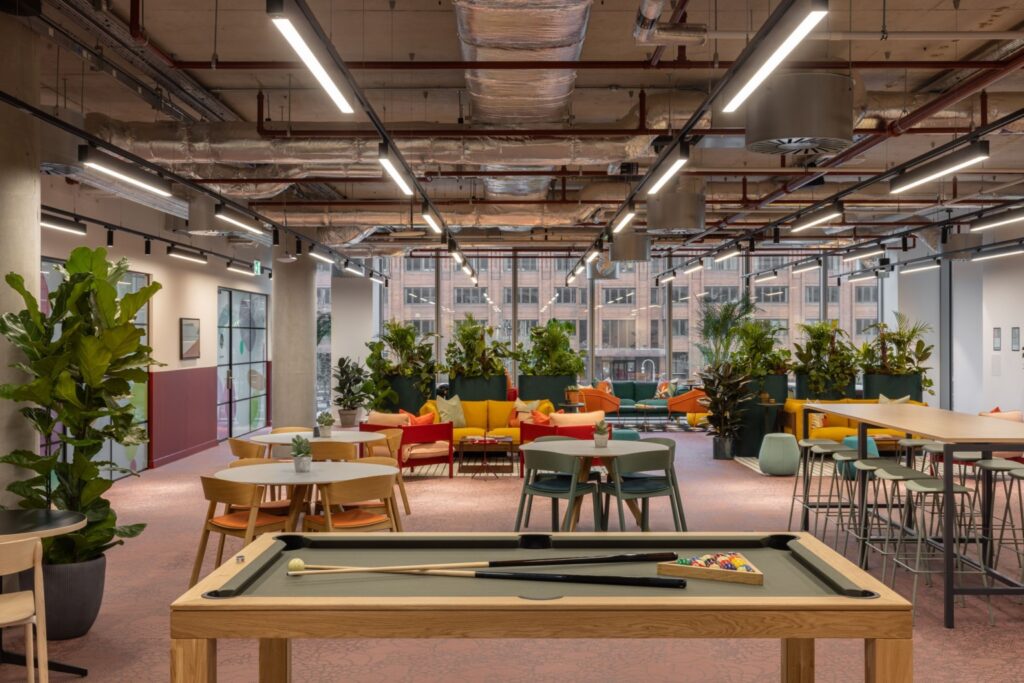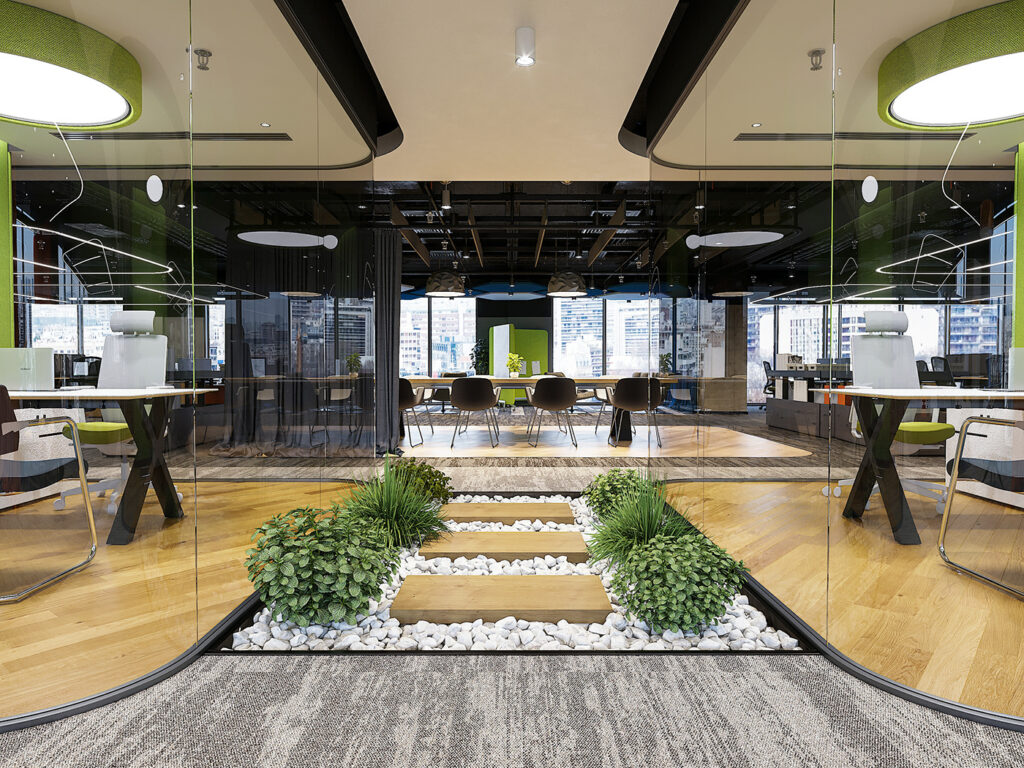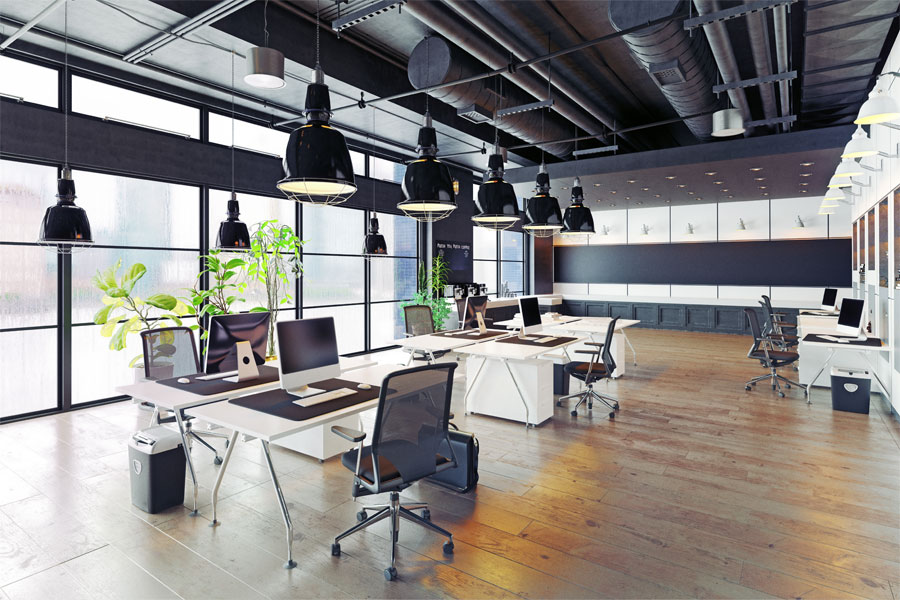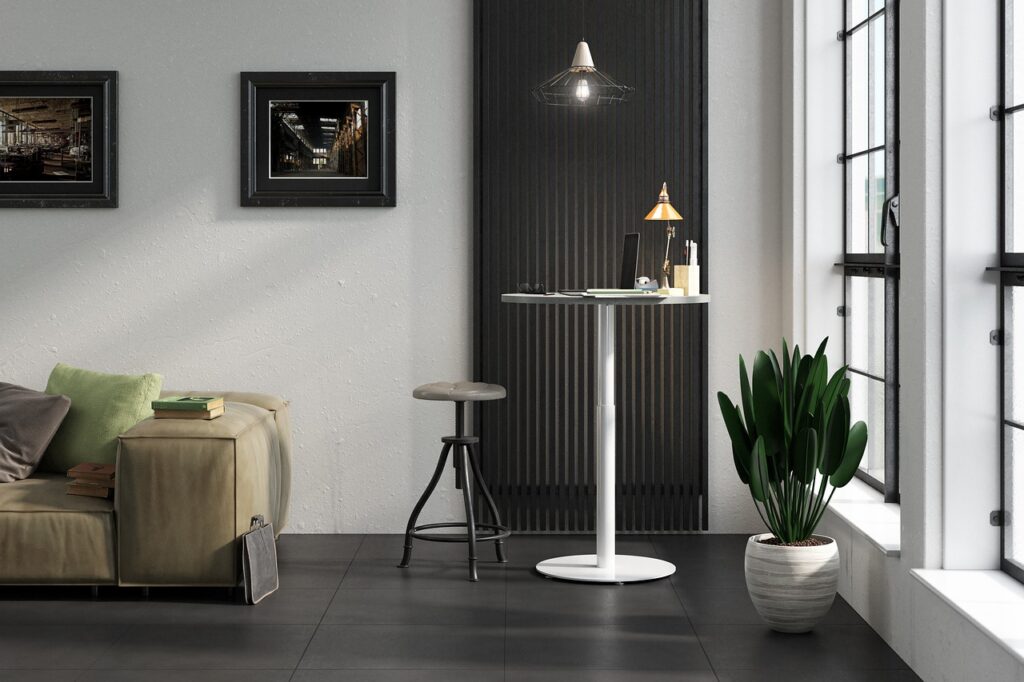Introduction
Work isn’t just about deadlines and deliverables—it’s also about how people feel while working. In 2025, companies are prioritizing wellness-focused commercial interiors that reduce stress, improve health, and boost productivity. The goal is clear: to create workplaces where employees thrive, not just survive.
Why Wellness in Design Matters
- Healthier Employees = Better Results
Wellness-driven interiors reduce absenteeism and improve performance. - Supports Mental Health
Calm, inspiring spaces help reduce workplace anxiety and burnout. - Improves Retention & Recruitment
Talented professionals prefer companies with well-being-focused workplaces. - Aligns with Global ESG Goals
Wellness-centric design supports sustainability and corporate responsibility.
Core Wellness Design Principles
- Biophilic Elements
- Add plants, vertical gardens, and natural textures.
- Boosts mood, reduces stress, and improves indoor air quality.
- Natural & Adaptive Lighting
- Daylight is ideal, but use circadian lighting systems for balance.
- Prevents eye strain and supports energy cycles.
- Ergonomics at the Core
- Adjustable desks and supportive seating.
- Encourages movement with sit-stand workstations.
- Air Quality & Ventilation
- Use smart HVAC systems with air purifiers.
- High-quality ventilation reduces fatigue and sickness.
- Acoustic Comfort
- Quiet zones for focus.
- Sound-absorbing materials to minimize distractions.
- Wellness Breakout Spaces
- Meditation corners, nap pods, or fitness-focused breakout rooms.
- Encourages mental resets and boosts productivity.
Case Example
A Mumbai-based IT company integrated natural light corridors, ergonomic setups, and biophilic walls into their office. Within six months, they reported:
- 18% lower absenteeism
- 25% improvement in employee satisfaction surveys
Wellness-Centric Trends in 2025
- Mindfulness Zones: dedicated spaces for meditation or quiet reflection.
- Fitness Integration: small gyms or movement-friendly furniture.
- Smart Wellness Tech: air sensors, circadian lighting systems, noise monitors.
- Holistic Cafeterias: healthy food stations complementing interior wellness.
Practical Steps for Businesses
- Start by auditing your current office for light, air, and ergonomic gaps.
- Involve employees in wellness-driven redesigns for better adoption.
- Consider long-term ROI: healthier employees mean fewer healthcare costs.
Conclusion
Wellness isn’t a luxury anymore—it’s a necessity for future-ready workspaces. By focusing on employee health and well-being, businesses can unlock higher productivity, loyalty, and long-term success.
👉 At AirBrick Infra, we design commercial interiors that blend wellness and functionality, ensuring employees feel their best at work.





